Dumpster diving: illegal but very much needed
Diving into dumpsters in search of discarded but edible food. It is no longer just homeless people who engage in this practice. “Dumpster diving” has long been popular among people who want to counteract food waste. Cursor spent an evening tagging along with a TU/e student who scours garbage cans on an almost daily basis.
Jelle (pseudonym, see text box below for explanation) is a master’s student in Sustainable Energy Technology (SET). He rummages through garbage dumpsters purely for ideological reasons. “So much good food goes to waste, it really is a shame. Meanwhile, there are lots of people who can no longer afford to buy food.” After closing time, we make the rounds past several supermarkets. What we find there is enough food to feed many families, although much of it is bread.
Would you be able to live solely off food found in dumpsters? “Yes, it’d make for a varied but strange diet”, says the student jokingly. “For example, I use some of these rolls - referring to the loot - for lunch, but try to get some fruit for breakfast. Otherwise, it would get a little unhealthy. You often find a lot of greasy food and bread rolls in the containers. You’re less likely to find fruit and vegetables, but of course, the haul is different every time.”
Microwave lobster
We come across a lot of non-food items during our dives; something you might not expect at first. Ear buds, clothes, accessories. Stuff thrown in by other people. Jelle has found more strange items in the past. “One particularly strange find was a jar of powdered milk from the 1960s. But I’ve also found some cool things you wouldn't expect to see, like mussels and lobster.”
But fish is quite a sensitive product, did you ever get sick because of this "volunteer work"? “No, a stomach ache at most, but I've never really gotten sick. The lobster had been pre-cooked and only had to be microwaved (!) and fortunately, the mussels were still fresh so we boiled them. You look, you smell, you taste.” The SET student always carefully checks the expiry dates when rummaging through dumpsters. “Depending on the product, a few days past expiry date is fine.”
Grocery bags
By the end of the evening, our bags are filled to the brim with bread, some spreads, two large cakes, sauces, some vegetables, a jar of honey, a field's worth of tulips, some clothing and accessories, smoothies and cleaning products. Especially the bread - more than two grocery bags full of baked rolls, snack rolls and flat breads – would be enough to feed many families. So the student doesn’t keep all of that food for himself. “I know people who can use it well and they come by or I call them.”
Jelle feels that the system we live in leads to food waste. “To me, dumpster diving is a way to address a problem resulting from capitalism: food being discarded because there’s no longer a profit to be made on it. The purpose of supermarkets should be to provide food to people, and they shouldn't be driven by perverse incentives such as profit accumulation. That way, they would just hand out the food shortly before it expires”, he points out.
Illegal
While digging around in the dumpsters, we attracted the attention of two passersby who gratefully accepted some of the finds. They were also worried about the police possibly showing up, but they never did. If you do run into the police, you might be fined - depending on the regulations in a municipality. If you want to dig through garbage legally you need a Morgenster permit, but those are not always easy to come by.
The reason why supermarkets do not just give away food that has passed its expiry date is because it is not allowed: “Supermarkets are bound by strict requirements”, WUR researcher Martijntje Vollebregt told RTL Nieuws recently. “Legally, you’re not allowed to sell perfectly good products that are past their expiration date; they can’t even be handed out for free”, Vollebregt said.
Jelle: “It would be nice if they’d just put this food in a box next to the dumpster to keep it “clean” and make it easier for people to take it home and eat or drink it on their own responsibility. Always check whether it looks and smells okay, and you’ll see that a lot of it is still safe to eat.”
Disclaimer
Due to the fact that dumpster diving is illegal and therefore punishable in the Netherlands, we refer to the student with a pseudonym. To prevent stores from making their food unusable, we have also chosen not to recognizably depict or name specific local stores. Several supermarkets in Eindhoven were visited.
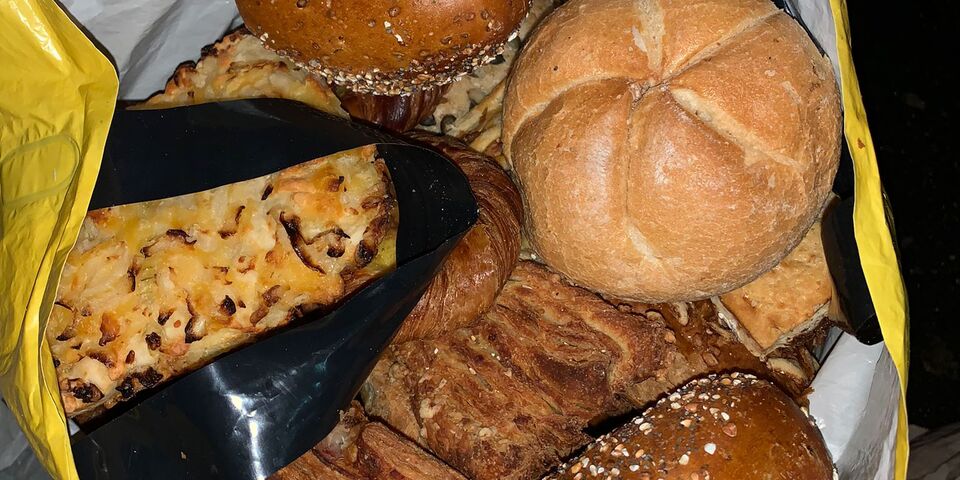

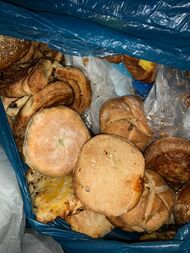
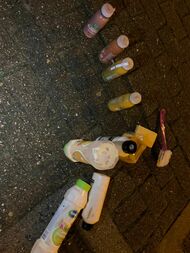
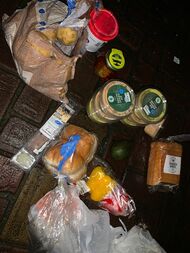
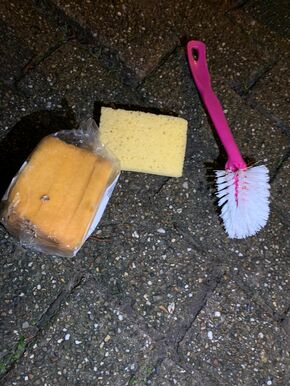
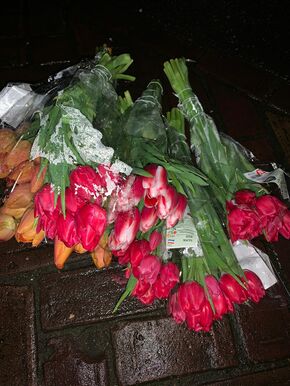
Discussion